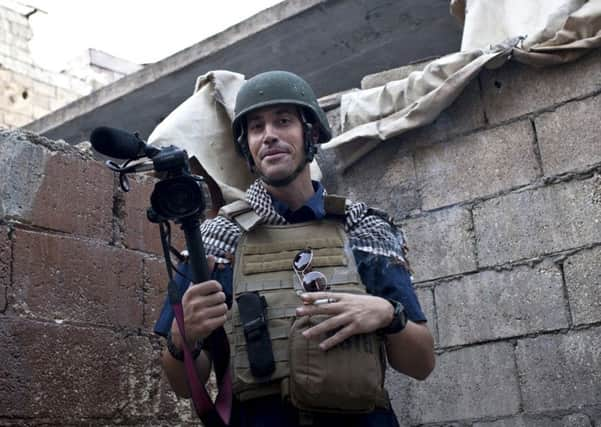Chris Burn: Telling truth to power is a mark of good journalism


The memorial at the Newseum is updated every year, with new names etched on to the two-storey glass panel to pay tribute to the reporters, photographers and broadcasters who have died reporting the news in the past 12 months.
As Donald Trump ramped his rhetoric against the media last weekend – stepping up his regular rants against “fake news” to describing those he considers most unfairly critical of him as “the enemy of the American people” – it is vital to stand up for a profession that often gets a bad press itself.
Advertisement
Hide AdAdvertisement
Hide AdIn the same way there are good and bad lawyers, politicians, teachers, builders and plumbers, in journalism there are plenty who represent the worst of the profession, but many, many more who strive ever day to do their best and bear witness to the world around them.
Among the names listed on the memorial is James Foley, the American journalist beheaded in Syria by Daesh militants in 2014 after being beaten and tortured during almost two years of captivity. Following his death, his parents said: “He gave his life trying to expose the world to the suffering of the Syrian people.”
There is also a dedication to Sunday Times reporter Marie Colvin, killed in 2012 when Syrian armed forces shelled the unofficial press centre in Homs.
Colvin, an American, had covered conflict in many countries, losing her left eye during Sri Lanka’s civil war. Accepting the Courage in Journalism Award from the International Women’s Media Foundation in 2000, Colvin said: “What’s important is trying to bear witness. The pain of war is beyond telling.”
Advertisement
Hide AdAdvertisement
Hide AdThe first journalist in time to be listed on the memorial is American Elijah Lovejoy, shot dead two days before his 35th birthday in 1837 as he sought to protect his newspaper’s printing presses from a pro-slavery mob.
Closer to home, and far more recent, is Veronica Guerin, the Irish investigative journalist murdered in 1996 for stories she had written on the country’s “untouchable” criminal gangs.
And in 2002, Roddy Scott, the Yorkshire cameraman and author of The World’s Most Dangerous Places, was killed as he covered clashes between Russian forces and a group of Chechen fighters.
“Whether it was Kurds, Chechens, Afghans or Palestinians, he was committed to ensuring that issues were not sidelined and received the international attention that they deserved,” his family said.
Advertisement
Hide AdAdvertisement
Hide AdThese are just a few examples of those who have paid the ultimate sacrifice for carrying out their work with honesty, endeavour and bravery. What good journalism boils down to is this – finding out the truth about something as best as possible and telling people about it as accurately as possible. It isn’t always easy to do and you can’t always get it 100 per cent right, but the key thing is to make an earnest attempt to do so.
By attempting to delegitimise the press with his repeated cries of “fake news”, Trump is trying to blur the lines between fact and fiction and create questions marks over any story that casts doubt on his ability to carry out his new role. But in the long-run, Trump also harms himself by becoming the boy who cried wolf. Who of his opponents will believe him when there is a genuinely inaccurate story that he has the legitimate right to complain about?
The trouble with screaming “fake news” when it is accurately pointed out there wasn’t a terrorist attack in Sweden “last night” as Trump wrongly implied at his rally last Saturday is that it leaves little room for manoeuvre when there are over-the-top comparisons to Hitler or Stalin.
But his current approach to the media appears to boil down to this: anything that he deems presents him in a positive and uncritical light is accurate and trustworthy, anything that does not is a “fake”, a lie.
Advertisement
Hide AdAdvertisement
Hide AdI was fortunate enough to visit the Newseum memorial as I covered the final weeks of the American election last year and the thing that struck me most was how fortunate I was to live in a country where the stakes are not normally that high for those working in the media.
Telling the truth matters, telling the truth about those in power matters most of all.
In the light of Trump’s latest tirade against the Press, Republican senator John McCain – a member of the President’s own party but a frequently vocal opponent – gave a stark warning of where this could all be heading in the US. “If you want to preserve democracy as we know it, you have to have a free and many times adversarial Press. And without it, I am afraid that we would lose so much of our individual liberties over time. That’s how dictators get started,” he said. “When you look at history, the first thing that dictators do is shut down the Press. And I’m not saying that President Trump is trying to be a dictator. I’m just saying we need to learn the lessons of history.”
Perhaps it is time for President Trump to take a history lesson himself by making a visit to the journalists’ memorial so close to his new home.